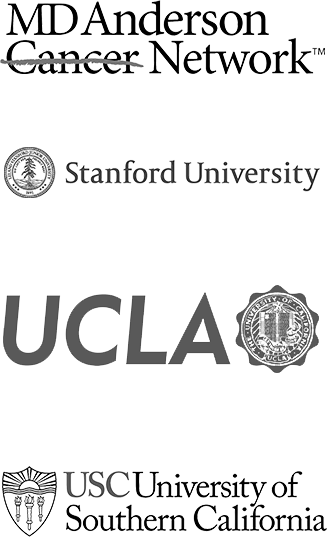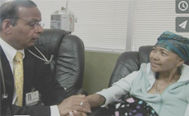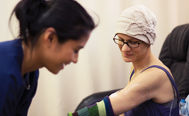 Men’s Health Week, June 15 to June 21, is a national awareness program designed to encourage men to take proper care of their health and practice preventive medicine. For their contribution, Cancer Center of Southern California physicians and staff have some helpful suggestions for cancer patients. These tips are intended to ease some of the symptoms you or a loved one might be experiencing during chemotherapy or any other form of treatment.
Men’s Health Week, June 15 to June 21, is a national awareness program designed to encourage men to take proper care of their health and practice preventive medicine. For their contribution, Cancer Center of Southern California physicians and staff have some helpful suggestions for cancer patients. These tips are intended to ease some of the symptoms you or a loved one might be experiencing during chemotherapy or any other form of treatment.
One of the most important messages the oncology team at the Cancer Center wants to share is the importance of communicating with your doctor. If you’re experiencing any symptoms that are bothersome or disrupting your daily routine, tell your doctor. Perhaps a change in your drug therapy or dose is the only adjustment needed. You and your medical team are partners. Never doubt the importance of communication and an open dialogue with your caregivers.
Helpful Tips
The following are some issues common to patients. If you or a friend is experiencing them, please take these suggestions into consideration or share them.
Fatigue
Recommendation: Get up and get moving.
Exercise is one of the best ways to inject some energy back into you. It doesn’t have to be anything strenuous, In fact, you want to start gently. An easy walk, yoga, or another moderate exercise is all that you need to do.
If you want, set goals for yourself so along with added pep, you have a sense of accomplishment and purpose as you attain a goal. Then, as your strength and energy improve, gradually increase duration and maybe intensity.
Before you make any changes to your routine, consult your doctor first. Chemotherapy weakens your immune system, so a trip to the gym might be premature for you. Also, you and your doctor can establish appropriate goals and set limitations.
Numbness or Tingling
Recommendation: An adjustment to your chemotherapy could alleviate the sensation or new medication may help manage symptoms.
Chemotherapy or another modality (surgery or radiation) sometimes affects the nervous system. Discuss your symptoms with your doctor. An adjustment to your dosage or another medication could alleviate the symptoms.
Dry Mouth or Sores
Recommendations: Switch to a soft toothbrush and avoid teeth whitening products; avoid spicy or crunchy foods; drink liquids with a straw.
A normal reaction to chemotherapy and radiation can be a dry mouth or even sores, making it uncomfortable to eat or drink. Some lifestyle adjustments might be all that are needed, but if the problems persist, then your doctor could prescribe pain relief.
Bloat or Swelling
Recommendations: Physical therapists can ease the swelling through massage and exercise. Compression garments and special bandages are helpful.
Swelling is a build up of fluid in fatty tissues under your skin (lymphedema), which can form if you’ve had lymph nodes removed. This is a common symptom for tumors removed in the upper body. Try to avoid straining yourself on the side of the tumor site and avoid heavy lifting.
Sufficient rest for your body and mind are also essential to managing any reaction to treatment, so make sure to include appropriate sleep and rest for strength and energy.
Contact the Cancer Center Specialists Today
The Cancer Center of Southern California is dedicated to their patients’ physical and emotional health. Cancer Center physicians believe alternative treatments along with traditional therapy are both important to their patients’ well-being. If you or a loved one has been diagnosed with cancer recently or you are seeking another opinion about cancer treatment, please contact us at 310-552-9999 to schedule a private consultation.



